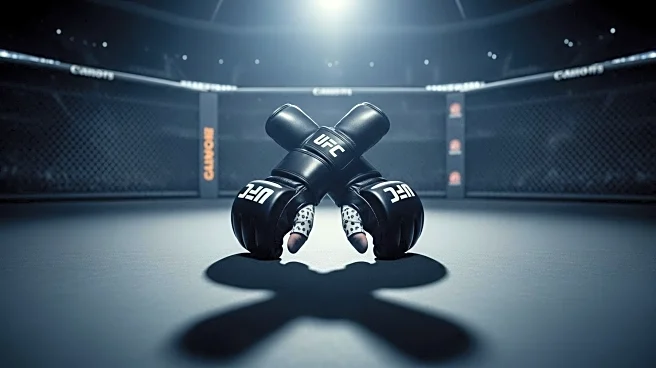What's Happening?
Saimon Oliveira, a Brazilian bantamweight fighter, missed the weight limit by a substantial margin at the UFC Rio weigh-ins, coming in at 144 pounds, which is eight pounds over the limit for a non-title contest. His opponent, Luan Lacerda, successfully made weight at 136 pounds. As a result, their bout will proceed as a catchweight fight, with Oliveira required to give Lacerda 50 percent of his purse and not exceed 155 pounds at the arena. The weigh-ins also saw Charles Oliveira and Mateusz Gamrot successfully make weight for their main event clash, while Valter Walker weighed in despite his fight being canceled.
Why It's Important?
Oliveira's failure to make weight highlights ongoing issues within the UFC regarding weight management and its impact on fighter health and competition fairness. Missing weight can lead to financial penalties and affect a fighter's reputation and career prospects. This incident underscores the need for better weight management practices and support for fighters. It also affects the dynamics of the fight card, potentially altering match outcomes and fan expectations. The situation may prompt discussions on the effectiveness of current weigh-in procedures and the need for reforms.
What's Next?
The UFC may review its weigh-in policies and consider implementing stricter guidelines or support systems to prevent weight management issues. Oliveira's future fights could be impacted by this incident, affecting his career trajectory. Fans and analysts will be watching closely to see how Oliveira performs in the catchweight bout and whether he can overcome the challenges posed by his weight miss. The UFC may also face pressure to address weight management issues more comprehensively to ensure fighter safety and fair competition.
Beyond the Headlines
This incident raises ethical questions about the pressures fighters face to make weight and the potential health risks involved. It highlights the need for a balance between competitive integrity and athlete well-being. The UFC's handling of weight issues could influence broader sports industry practices and athlete support systems, potentially leading to changes in how weight management is approached across combat sports.












